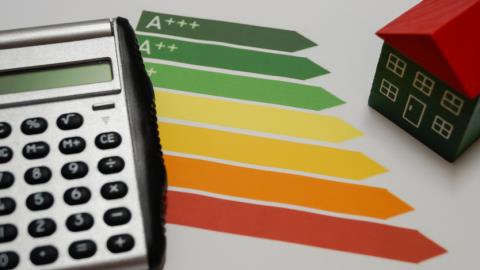In a discussion with Alexis Normand, the founder of the carbon accounting platform Greenly, it became clear that carbon accounting has emerged as a crucial element in the banking sector’s approach to sustainability.
As businesses face the impending implementation of the European Sustainability Reporting Standards (ESRS), carbon management is gaining paramount importance. These new standards, which will take effect later this year, mandate that EU companies closely monitor and report their carbon emissions.
Greenly operates by evaluating transactions and all associated scope emissions, thereby identifying suppliers that excel in carbon intensity. This enables businesses to align with their Net-Zero targets and the requirements outlined in the Paris Agreement. The platform aims to assist clients in minimizing their carbon footprints through strategies focused on reducing energy consumption, refining purchasing policies, and managing travel-related impacts.
The firm has collaborated with industry leaders such as BNP Paribas, Hello Fresh, Ubisoft, and Aptiv, currently overseeing the management of 25 million tonnes of carbon across a diverse client base of over 1,300 organizations.
Normand highlighted the increasing accuracy of carbon data, which is significantly influencing how companies access and allocate capital. As a result, businesses are gaining greater transparency into their investments and the measurable sustainability impacts they create.
Despite this progress, Normand noted that only 25% of global emissions are currently monitored and managed. This shortfall presents a challenge in the collective goal to reduce emissions by 50% by 2030 and attain Net Zero by 2050. He emphasized that companies must grapple with climate strategies that transcend mere compliance, evolving into ethical considerations central to their operations.
“From a commercial standpoint, carbon accounting acts as a long-term safeguard for businesses against obsolescence in a Net Zero future,” Normand stated. “In the immediate term, it offers a pathway to business growth by highlighting to customers how their own decarbonization efforts can be supported. The most effective way for businesses to adapt in this new landscape is to seamlessly integrate carbon accounting into their daily operations, much like they do with financial accounting.”
When comparing ESG (Environmental, Social, and Governance) metrics to carbon accounting, Normand noted that carbon accounting provides a more specialized and scientific approach to emissions management, while ESG aims to address a broader array of business shortcomings. Carbon accounting can be incorporated into ESG metrics as a vital component of the environmental criteria, aiding firms in establishing standardized sustainable practices.
A central concern regarding sustainable practices in business circles is the associated costs. Smaller enterprises often find themselves at a disadvantage when pursuing greener options, as sustainability can entail hefty financial investments.
Normand elaborated on this issue: “Carbon management remains dominated by large consultancies that typically conduct ad-hoc assignments for corporations. Unfortunately, these services come with a steep price tag—ranging from $20,000 to $100,000—which often excludes small businesses from participation. Given that smaller companies account for a significant portion of emissions, this is a critical gap that needs to be addressed.”
He further emphasized that Greenly’s mission is to democratize climate action by making carbon management more accessible and affordable for smaller organizations. Younger businesses can leverage decarbonization as a competitive advantage, while larger corporations often struggle due to their entrenched supplier relationships.
Recently, Greenly launched the Climate App Store, a platform dedicated to measuring, monitoring, and reducing carbon emissions. This app store features both free and premium applications designed to help businesses track their carbon emissions and energy usage across various sectors, including food, textiles, events, and digital platforms.
In closing, Normand shared his vision for the future of Greenly: “Our ultimate goal is to make carbon accounting as commonplace as financial accounting. It’s not merely about adding another tech layer to organizations but enriching their understanding of value creation by factoring in their true impact on the climate. We aspire to be a catalyst for this pivotal transformation.”
